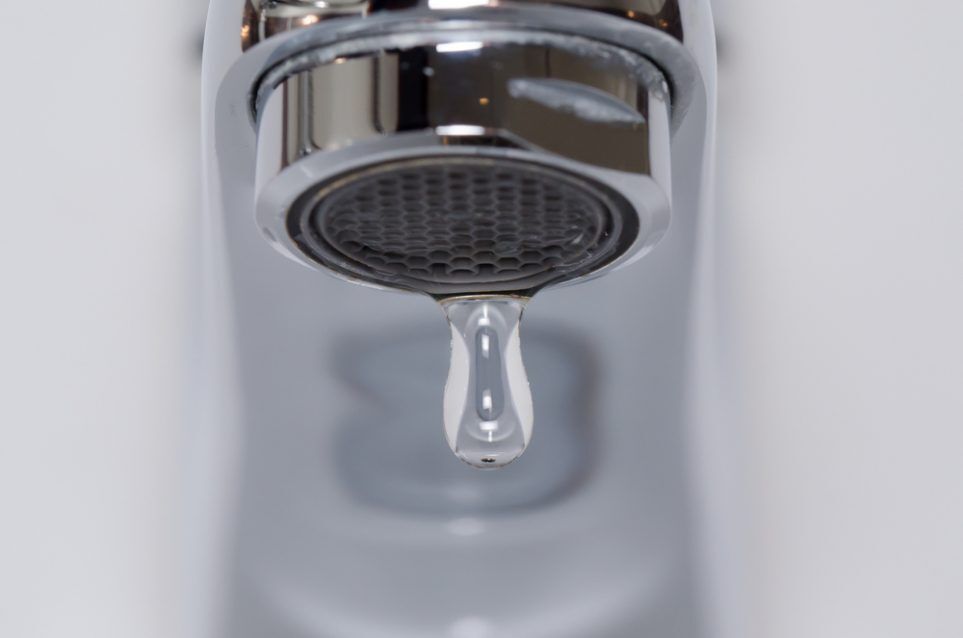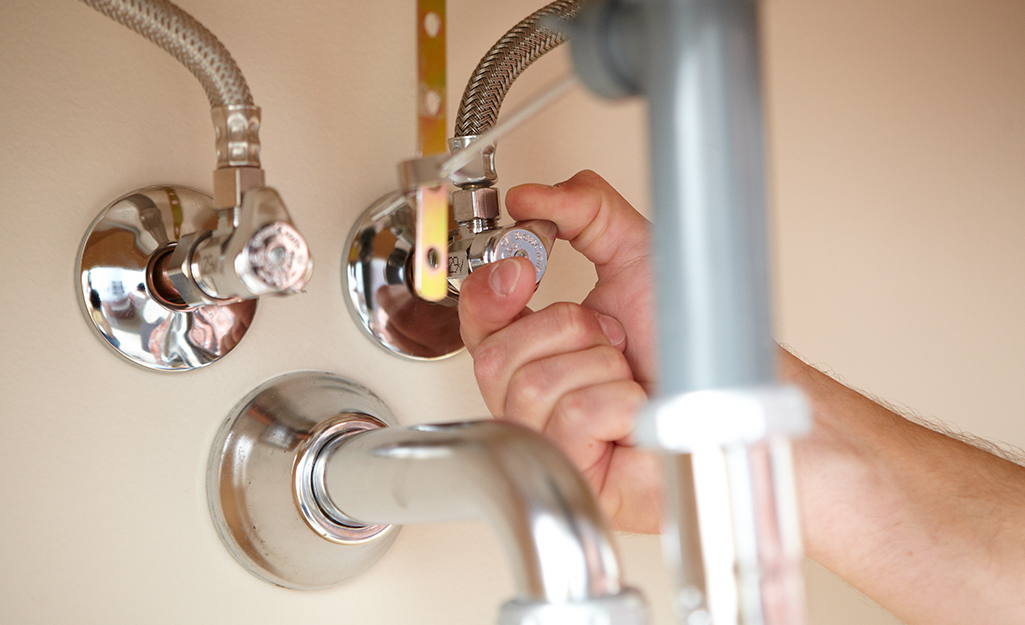What're your thoughts about Why Are My Faucets Dripping (And Can I Fix It Myself)??

Dripping faucets might look like a minor trouble, however their effect goes beyond just the annoyance of the sound. From drainage to incurring unnecessary financial expenses and health and wellness dangers, overlooking a dripping faucet can bring about numerous repercussions. In this short article, we'll explore why it's important to address this usual family issue promptly and properly.
Wastage of Water
Ecological Effect
Dripping taps contribute substantially to water waste. According to the Epa (EPA), a single tap dripping at one drip per secondly can squander greater than 3,000 gallons of water annually. This not just strains water resources yet also impacts communities and wild animals depending on them.
Financial Expenses
Increased Water Expenses
Beyond the ecological impact, trickling faucets can inflate water expenses significantly. The accumulated wastefulness with time converts right into higher utility expenses, which could have been prevented with prompt fixings.
Possible Residential Or Commercial Property Damage
In addition, long term leaking can result in harm to components and surface areas bordering the faucet. Water buildup can cause discoloration, rust, and also structural concerns if left ignored, resulting in extra repair costs.
Health and wellness Concerns
Mold And Mildew and Mold Growth
The continuous visibility of moisture from a trickling tap creates a suitable setting for mold and mold development. These fungi not just endanger interior air quality however additionally posture wellness risks, especially for people with respiratory system problems or allergic reactions.
Waterborne Diseases
Stationary water in trickling taps can end up being a breeding place for germs and other pathogens, raising the threat of waterborne diseases. Impurities such as Legionella bacteria grow in stagnant water, possibly causing severe health problems when consumed or breathed in.
Do it yourself vs. Expert Repair work
Advantages and disadvantages of DIY Fixing
While some may try to repair a trickling faucet themselves, do it yourself repair work feature their own collection of difficulties. Without proper knowledge and devices, DIY attempts can aggravate the issue or cause insufficient repairs, extending the issue.
Advantages of Employing a Professional Plumber
Working with a professional plumber makes certain that the underlying reason for the trickling faucet is attended to efficiently. Plumbers possess the expertise and devices to detect and fix faucet issues effectively, conserving time and decreasing the risk of further damage.
Step-by-Step Overview to Fixing a Dripping Faucet
Tools Required
Before attempting to take care of a leaking tap, gather the needed tools, including an adjustable wrench, screwdrivers, substitute components (such as washers or cartridges), and plumber's tape.
Typical Faucet Issues and Their Solutions
Identify the sort of tap and the certain problem causing the drip. Common troubles consist of worn-out washers, corroded valve seats, or malfunctioning O-rings. Refer to maker instructions or on the internet tutorials for detailed assistance on repair services.
Safety nets
Regular Maintenance Tips
To avoid trickling taps, perform routine maintenance such as cleaning up aerators, checking for leakages, and changing worn-out parts quickly. Furthermore, take into consideration installing water-saving gadgets or updating to a lot more reliable components.
Importance of Prompt Repairs
Attending to leaking faucets as soon as they're noticed prevents more water wastage and possible damages, ultimately conserving both water and cash over time.
Impact on Building Value
Perception of Well-Maintained Building
Preserving a residential property in good condition, including resolving upkeep issues like trickling faucets, improves its regarded value and charm amongst potential purchasers or tenants.
Influence on Resale Value
Characteristics with well-maintained plumbing components, including faucets, command greater resale values in the property market. Dealing with trickling faucets can add to a favorable impression during residential or commercial property examinations and negotiations.
Ecological Responsibility
Private Payment to Conservation
Taking responsibility for taking care of trickling faucets lines up with broader efforts toward water preservation and ecological sustainability. Every person's actions collectively make a considerable influence on maintaining precious resources.
Sustainable Living Practices
By prioritizing timely repair services and taking on water-saving behaviors, people add to lasting living practices that benefit both existing and future generations.
Verdict
Dealing with a leaking tap exceeds plain benefit; it's a crucial action towards saving water, reducing monetary costs, and securing health and building. Whether through do it yourself repairs or expert aid, taking action to take care of trickling faucets is a tiny yet impactful way to promote accountable stewardship of sources and add to a much healthier, much more sustainable future.
How to Fix a Leaky Faucet: Step-by-Step Repair Guide
A leaky faucet may seem like a simple annoyance, but if it's not fixed promptly, that leak could cost hundreds to potentially thousands. From water damage to mold, mildew, and high water bills, even a tiny leak can be catastrophic if left unattended. Damage like this can even affect the overall value of your home, so it's important to take the right approach for leaky faucet repair. You may need the help of a plumber in some cases, but we've got a few tips you can try on how to fix a leaky faucet before calling the pros.
Four Faucet Types
When you're learning how to fix a leaky faucet, the first step is knowing what kind of faucet you're working with! There are four common types.
Cartridge Faucets
Cartridge faucets come in one- or two-handled varieties. In one-handled cartridge faucets, hot and cold water combines in a single cartridge. In the two-handled versions, hot and cold water are controlled separately and mixed in the faucet.
Ball Faucets
Ball faucets have a single lever you push up and down to adjust the pressure and rotate to change the temperature. A slotted metal ball controls the amount of water allowed into the spout.
Compression Washer Faucets
They're the oldest type of faucet, but they're still used in many homes — especially older ones. Compression faucets have two separate handles that, when turned, raise or lower the washer that seals a water valve. This valve stops water from flowing through the faucet when it is turned off.
Disc Faucets
Disc faucets rarely need to be repaired due to their maintenance-free design. The water flow is controlled by two discs — the upper one raises and lowers against a fixed lower disc, creating a watertight seal. If your disc faucet starts leaking, you may need to replace the seals or clean residue buildup from the inlets.
Fixing a Leaky Faucet
Step 1: Turn Off the Water
Whether you're learning how to fix a leaky bathtub faucet or how to fix a leaky kitchen faucet, always turn off the water supply to your working area when you're fixing a leak. The last thing you want is a flood added to your list of things to fix.
Look for the shutoff valves below your sink or around the tub and turn them clockwise to stop the water flow. If your faucet doesn't have shutoff valves, you may need to turn off the water for the whole house. Check to make sure it's off by turning the faucet on. If nothing comes out, you're ready to start the repair.
Step 2: Take Apart the Faucet
How you disassemble your faucet depends on the type of fixture you have. You can use a flathead screwdriver to remove the caps on top of the handle or handles for cartridge and compression faucets. Inside, you should see handle screws. Unscrew these with a screwdriver to remove the handle.
Disc- and ball-style faucets will typically have an inlet screw near the handle, and removing that will reveal the interior of the faucet.
Detach the Valve Stem
For cartridge- and compression-style faucets, you'll see the inner valve stem or cartridge once you remove the faucet handles. If you have a compression faucet, unscrew the brass valve stem. If you have a cartridge faucet, pull out the cartridge. If your cartridge has been in place for a while, it may require some tools or extra force to remove it due to mineral deposits.
Examine and Replace Parts
Once you've removed the parts, check them out to confirm what needs to be replaced. You may see corroded rubber washers, O-rings, stems, or cartridges. On a ball-style faucet, check the seats and springs for damage.
If you need to repair a leaky disc faucet, check the inlet and seals on the lower disc.
Once you determine what parts must be replaced, visit your local hardware store. Bring the damaged parts with you to ensure you can purchase the correct components to replace them.
Clean Valves and Faucet Cavity
If you've removed a stem or cartridge, you may notice mineral buildup in the faucet's threads. Use white vinegar to clean the valve seat by soaking it for a few minutes, then scrub it away with a soft toothbrush and rinse with warm water. You can also clean the interior of the faucet in the same way.
Reassemble the Faucet
Once your faucet is cleaned and the required parts have been replaced, it's time to reassemble it. Put the pieces back together and slowly turn the water supply back on. Doing this slowly is crucial because too much initial water pressure can damage the new hardware you've just installed.
https://homewarranty.firstam.com/blog/how-to-fix-leaky-faucet

Hopefully you liked our excerpt on Should I Repair or Replace a Leaky Faucet?. Thanks so much for taking the time to read our piece of content. Sharing is good. Helping others is fun. Many thanks for your time invested reading it.
Comments on “Exploring the Value of Dealing with a Malfunctioning Faucet”